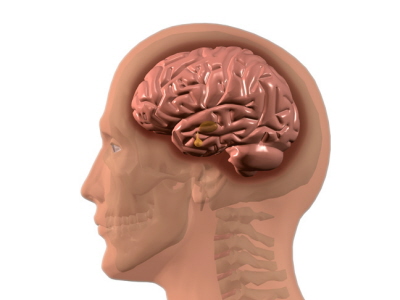Frequently Asked Questions
Eating Disorder Q&A:

This section is to help readers better understand the nature of eating disorders and general mental health practices. For more information on specific conditions, please go to the Resource Guide page on this website. For more information on specific medications, please go to the Medicatios page on this website.
Q: Is an eating disorder a condition of choice?
A: Absolutely not. Although many eating disorders (ED) begin with behaviors made by conscious choice the disordered patterns and resulting mental distress are often perpetuated by changes in brain function and anatomy. Most individuals with an Eating Disorder can recognize the significant distress that their Eating Disorder causes in their life, yet they find their Eating Disorder nearly impossible to control.
Q: Is an eating disorder (ED) a nutritional disease?
A:No. To an observer an Eating Disorder may appear to be fueled by behaviors surrounding food, weight and body image. However, the true fuel that drives an ED has a psychological source. Further more, an ED is considered a psychiatric/medical condition.
Q: How long does an eating disorder last?
A:The average course of an Eating Disorder is about 5 years but can vary based on the individual and their treatment program. About 60% of individuals can recover fully with the remaining 40% suffering from either a chronic or deteriorating course of the illness.
Q: How can treatment help those suffering with an eating disorder?
A:The goals of treatment are to: 1) reduce the medical and life threatening risks associated with an ED, 2) treat associated psychiatric conditions such as depression, anxiety and mood disorders to minimize disruptions in personal relationships, school, career, and social functioning, and 3) to facilitate a plan of action towards recovery.
Q: What medical complications are associated with eating disorders?
A:Conditions such as bulimia nervosa (BN) and anorexia nervosa (AN) can lead to many complications such as cardiac conditions (irregular heart beats and heart attacks), osteopenia (bone loss), seizures, gastrointestinal illness (irritable bowel, constipation), gynecological issues (ammenorea, infertility).
Q: What types of treatment are available for people with eating disorders?
A:Outpatient treatment is usually the first step in the treatment of an ED. The “Gold Standard” of treatment for a clinical ED usually is comprised of a team of physicians, psychotherapists and nutritionists who all have specific training and treatment experience with EDs. Patients should be meeting with a treatment team member a minimum of once a week and may also have support from weekly group meetings. In severe ED cases with medical complications, patients are often sent for inpatient hospitalizations for medical stabilization. Extended care programs for severe EDs include inpatient rehabilitation programs which may be hospital based or privately operated. These types of programs are typically 30 to 90 days or more and are intended to begin the process of recovery (not cure the condition). Outpatient day programs have patients attending intense treatment programs during part of the day (or evening). Programs vary from 3 to 5 days a week and from 4 to 8 ours a day and can last from weeks to months.
Q: When is a person with an eating disorder considered to be in recovery?
A:Although technically a person with an Eating Disorder is considered in recovery when they no longer meet criteria listed in the Diagnostic and Statistical Manual – IV for psychiatric illnesses, true recovery is best indicated by the patient’s ability to report minimal distress and compulsive thoughts surrounding food and body image issues. Many individuals who have had a history of an ED may retain certain behaviors acquired with their ED such as eating with specific rituals or habits and avoidance of certain foods without major distress related to these behaviors.
Mental Health Q&A:
Q: Why seek out help from a mental health professional?
A:Mental health ultimately determines a person’s overall quality of life. Two types of individuals seek out mental health professionals 1) people with an acute mental illnesses like depression or anxiety where their condition is taking its toll on their quality of life, and 2) people who do not necessarily have an acute condition but instead seek to learn more about themselves and further enhance the quality of their lives.
Q: What types of professional mental health practitioners are available for help and who should I seek out?
A:Most of the qualified professionals include psychologists, psychiatrists and social workers. The professional practice of psychotherapy requires advanced training and licensing whereas currently there is little regulation for individuals claiming they do “therapy.” Be sure to check for individuals with academic training from accredited programs, experience in the field, and proper licensing and credentials.
Q: What’s the difference between a psychiatrist and a psychologist?
A:Psychologists have advanced doctorate degrees (PhD., PsyD) in psychology and are fully trained in the practice of psychotherapy and psychological testing methods. A psychiatrist is a medical doctor (M.D. or D.O) specializing in behavioral medicine and mental illness. As a physician, in addition to training in psychotherapy, a psychiatrist is also medically trained in neurology and internal medicine which assists in diagnosis and treatment approach including the capacity to prescribe medications and to order and interpret medical tests.
Q: How much of mental illness is a result of biology and how much is the result of
stressors in the environment?
A:Most research has demonstrated that biology and environment contribute equally to the onset of many conditions such as depression. Other mental illnesses such as bipolar disorder and schizophrenia have a more biological basis for symptom onset. However many conditions, such as post-traumatic stress disorder (PTSD), may have had an environmental event take place which, due to its intensity or chronicity, has lead to anatomical and biological changes
taking place in the brain and central nervous system.
Q: How long does it take to recover from mental illnesses?
A:This depends on many factors. The type of mental illness is important (depression may be short-term and situational whereas schizophrenia is usually a life-long illness). An individuals history of illness is important (a person with repeated bouts of debilitating depression will likely require a longer treatment plan than a person with new onset of depression). Family history can also be important (someone from a family where anxiety and panic is severe and common in parents, siblings and relatives may also require a longer treatment plan). Basically, the more biologically based a mood disorder or other mental illness is, the more likely it will be that a treatment will require a longer and/or more aggressive plan.

